The Tales of an ENTERPRISING HOUSEWIFE



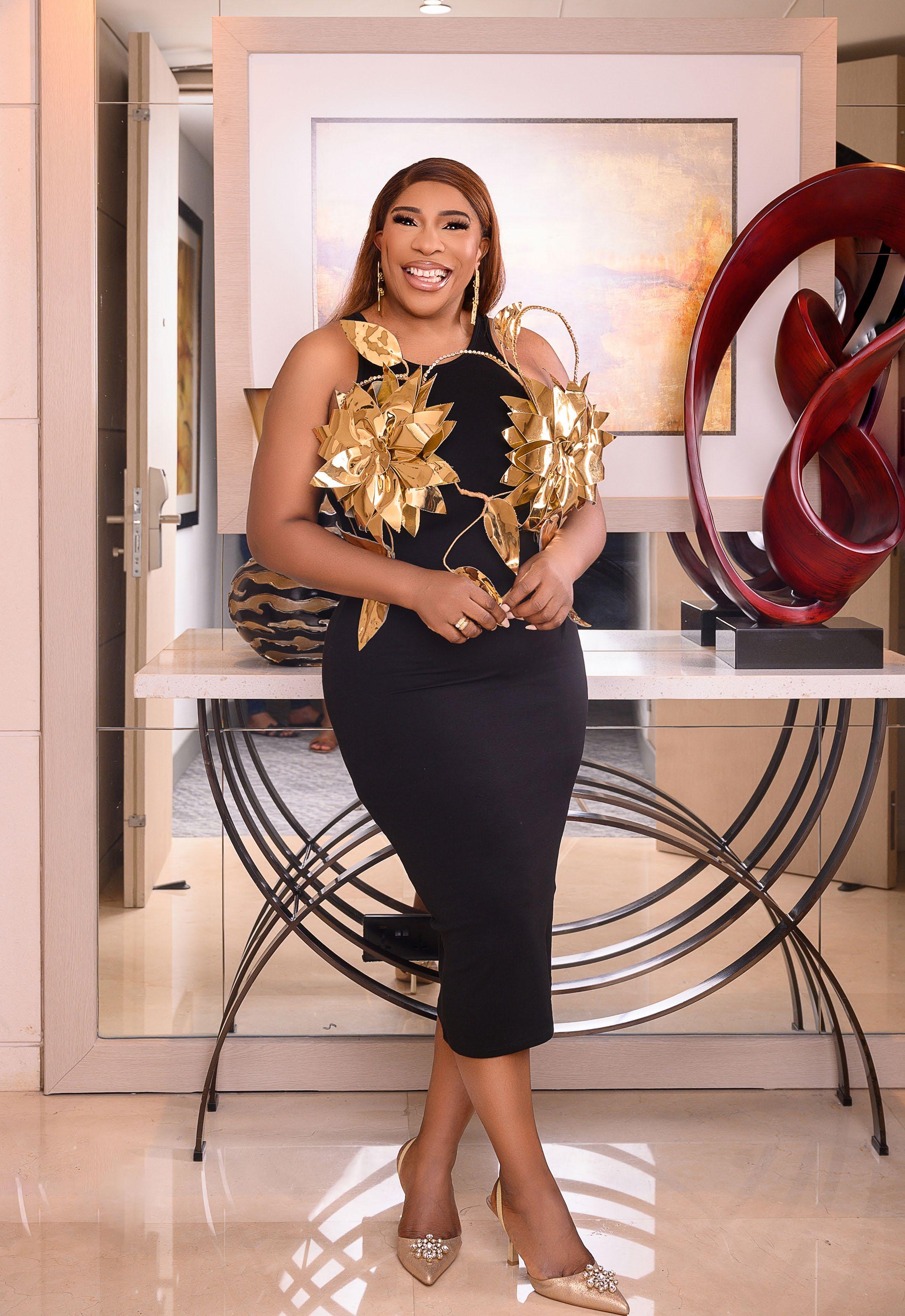



wardrobe can be referred to as a minimalist approach to fashion. It’s all about gathering collections of clothing items that can be mixed and matched to create a variety of outfits. A capsule wardrobe is about having a smaller number of high-quality, timeless pieces that you can wear interchangeably throughout the year. Do not mistake a capsule wardrobe for having a big wardrobe filled with trendy, fast-fashion items that can easily go out of style. Typically, a capsule wardrobe is made up of around 30 to 50 items, including shoes, jackets, dresses, and tops, among others. You need to make sure that the items are neutral and classic in colour and style, so pairing them with one another will be easy. The goal of a capsule wardrobe is to break down this process of getting dressed and also to encourage more mindful and sustainable consumption habits. Below are some steps to follow to build your capsule wardrobe.

Acapsule
1
Take a good look at your current wardrobe; look at what you wear the most, what you don’t wear, and what you need to replace.
You need to consider your style when creating a capsule wardrobe. Think of the type of clothes that make you feel confident and comfortable. Doing this lets you figure out and simultaneously focus on the clothes you need and enjoy wearing.


Go for colours that you love and, most importantly, complement each other. Doing this will make it easier for you to mix and match your clothes and create different outfits.
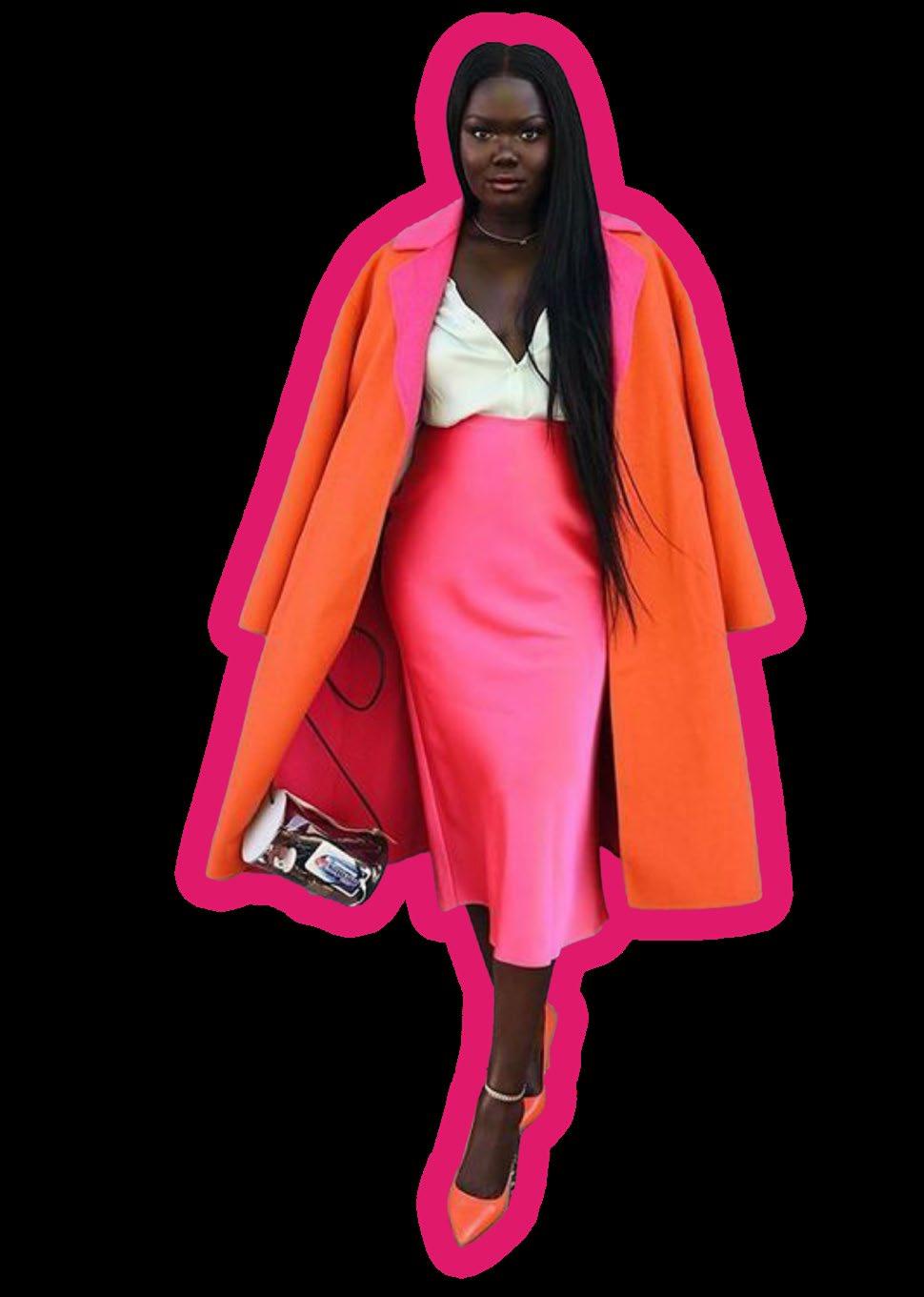
3 5 7
In most cases, building a capsule wardrobe can be very expensive. Set a budget and stick to it to make it easier for you. Invest in quality basics and statement pieces, but don’t overspend.
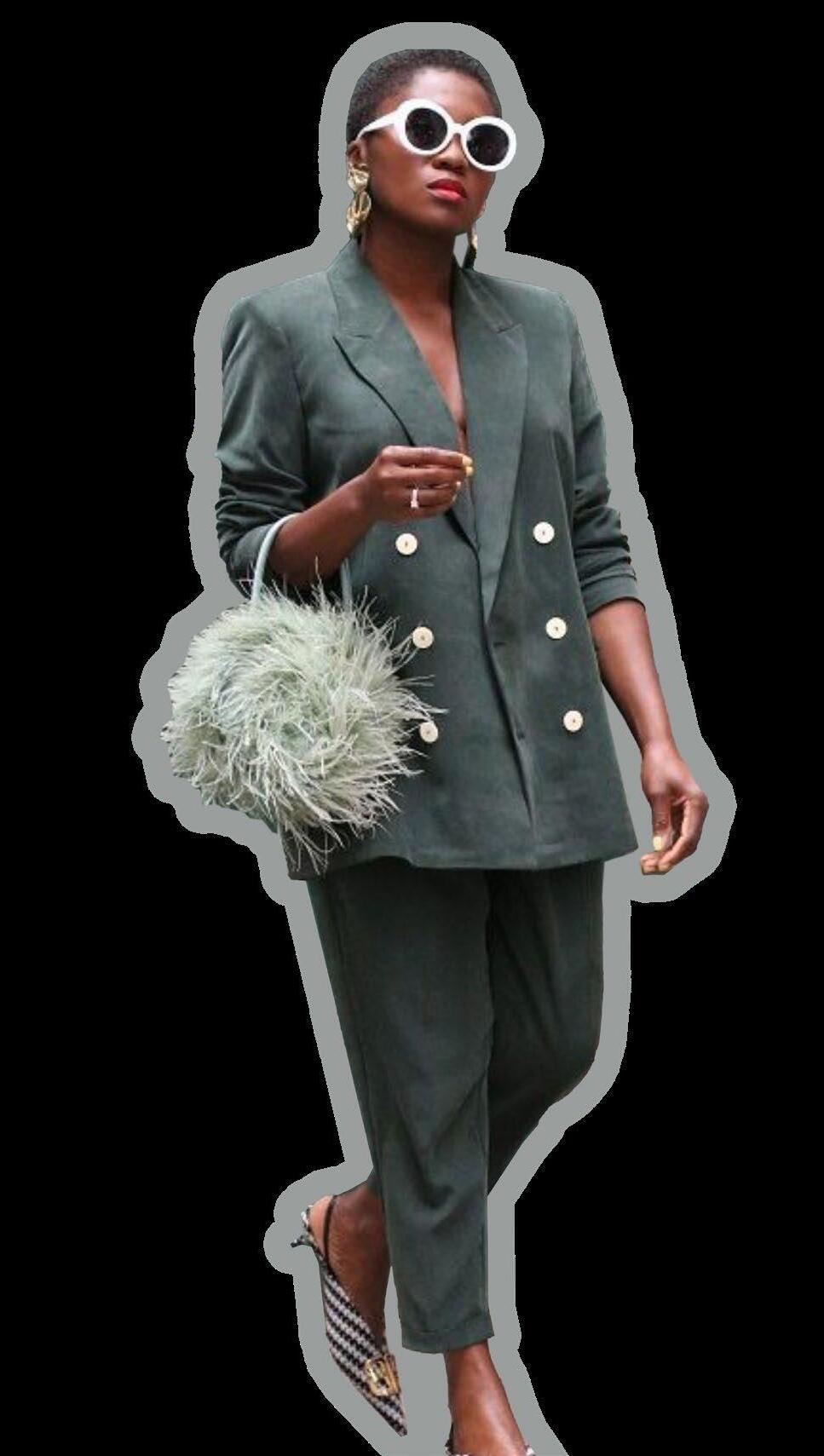

After discovering your basics, you can add statement pieces that reflect your style. This might include accessories like a colourful scarf, a unique piece of jewellery, or a bold jacket.

4 6 8
When setting the foundation of your capsule wardrobe, you can start with a few high-quality basics. This might include a white T-shirt, a black blazer and a pair of jeans.
FOCUS ON QUALITY OVER QUANTITY
When building a capsule wardrobe, it is important to focus on quality over quantity. Go for well-made clothes that will last for years instead of cheap, trendy items that will fall apart quickly.
EXPERIMENT WITH DIFFERENT COMBINATIONS



Experiment with different combinations to create new outfits once your capsule wardrobe is in place. Ultimately, you will be amazed by how many different looks you can create with just a few pieces.


KEY TAKEAWAY
Building a capsule wardrobe can be very difficult, as it takes a lot of time and effort, but the result gives you a simplified wardrobe that deflects your style and makes getting dressed a breeze.
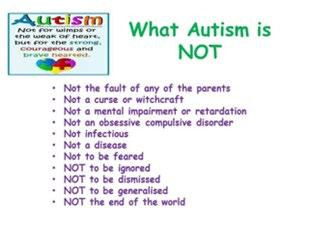 BY IFUEKO KARIBI-WHYTE
BY IFUEKO KARIBI-WHYTE
Inspiredkw@gmail.com
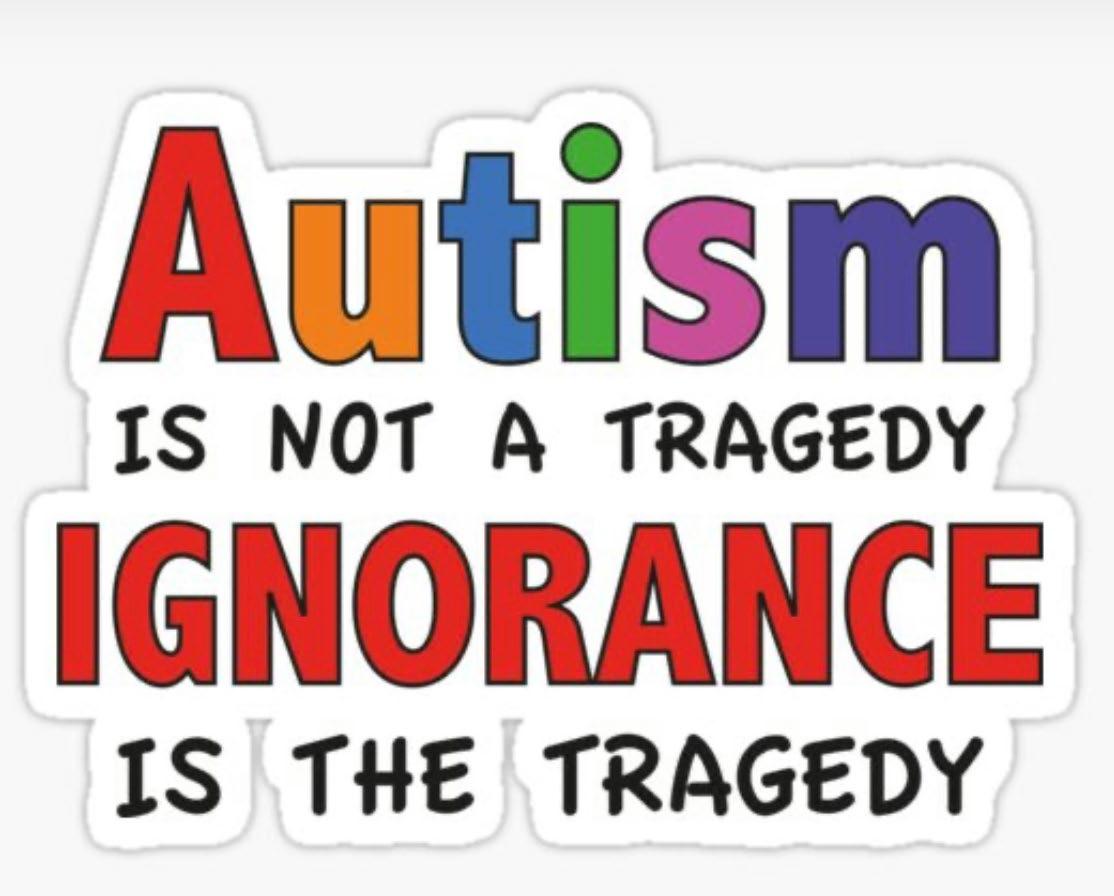
Eachperson with autism has a unique set of strengths, abilities, and struggles, and various factors and co-occurring conditions shape their experiences. In turn, the impact of autism can vary greatly, from high levels of support needed to independent functioning.
Recognising the diversity and individuality within the autism community is crucial to understanding and respecting the diverse experiences and perspectives of individuals with autism. Autistic people exist along a spectrum; autism is definitely not a single story. It has beauty, and simultaneously, in my opinion, autism can be a beast.
The common thread that runs through autism is the potency of love and the power of hope. You must never stop loving and never stop hoping. It’s never too late to facilitate your child’s life of independence and self-fulfilment.
I end this month-long series on Autism with three stories that illustrate the potency of love; they demonstrate the need to gather knowledge and why one must never give up on their child with Autism.
at: https://www.bbc. com/pidgin/articles/ c3gvdr99rgqo
THE POTENCY OF LOVE BY CHIKA OMORUYI, A MOTHER WITH THREE AUTISTIC SONS
The first diagnosis left me speechless. My Mum kept looking at me, but no reaction came till I was robbed later that day; I flipped, and it all came out. My Mum had to call my brother to satiate me.
I researched, went to seminars and attended Skype meetings with “experts” — many of whom proved to be quacks looking for Guinea pigs to try out some of their innovations. I was a shadow of myself, but any small progress was welcomed with celebrations.

Following the 3rd diagnosis, the psychologist collated a team of psychiatrists and experts to see me. Still, all I wanted was the guarantee that I could contact him at any time.
From endless head banging, suspensions, being non-verbal, sensory issues, countless SLT sessions, I am grateful to God for guiding us through it all. We’ve had some amazing highs and some devastating lows; I wouldn’t have it any differently. I love my boys.
We take it one day at a time.
I am forever grateful for everything.
An important lesson has been to give the boys my best; I have to take time out to Refresh and Recharge. It is so important we take some time out for ourselves to recalibrate; get respite so we don’t burn out.
HOPE PERSONIFIED: CAMBRIDGE UNIVERSITY’S JASON ARDAY BECOMES YOUNGEST BLACK PROFESSOR
BBC News Pidgin. (2023). Jason Arday: Cambridge University professor wit autism wey no fit read until 18. [online] Available
Diagnosed with autism in his early years, Jason Arday was unable to speak until he was 11 years old and could not read or write until he was 18. Now aged 37, he is the youngest black person ever appointed to a professorship at the University of Cambridge.
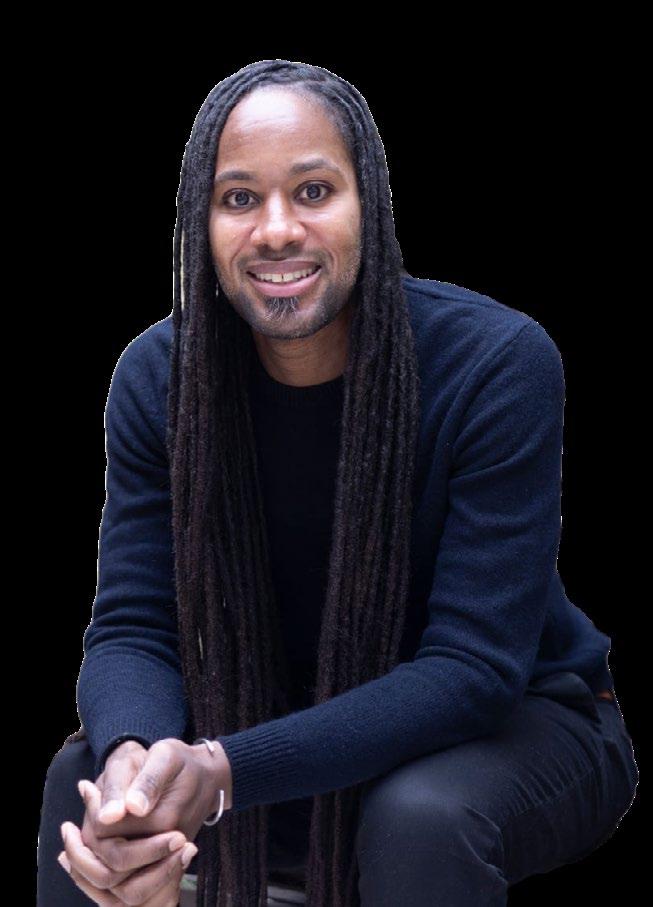
His mother played a critical role in developing his self-confidence and skills. She introduced him to a wide range of music in the hope this would aid his conceptualisation of language.
But it also kick-started a lifelong interest in popular culture that has characterised some of his research. Supported by his mentor, college tutor and friend Sandro Sandri, Professor Arday finally began to read and write in his late teens.
He went on to get a degree in Physical Education and Education Studies from the University of Surrey before training as a PE teacher.
Professor has since acquired two masters qualifications and a PhD in educational studies. Asked when he realised he was a sociologist, he says it was probably in about 2015.
“On reflection, this is what I meant to do.”
Eight years on, he has become a professor of sociology of education at Cambridge. There are currently five black people who are professors at the university.
Born and raised in Clapham, south-west London, Professor Arday, a sociologist, says formative moments included watching Nelson Mandela’s release from prison on television and South Africa’s symbolic triumph in the 1995 Rugby World Cup.
MY STORY
Having discovered quite early that one of my twins is on the Autism Spectrum, I have since immersed myself in the autism community, working tirelessly to ensure my daughter achieves her highest potential and lives her best life. I look forward to my daughter starting college in September, embarking on the first stage of adulthood like any other young adult.
A working mum, I passed the certification exam in 2019 to become a Certified Special
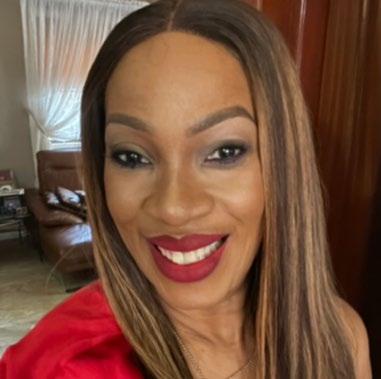
Needs Therapist, IBCCES, and just this year was awarded a Diploma in Autism. A few years ago, I founded the group AMIN (Autism Mothers In — and outside — Nigeria), a community of mothers offering hope and succour to fellow mothers and Autistic families.
Famous diagnosed Autistic people;
• Actors; Dan Aykroyd, Daryl Hannah and Anthony Hopkins
• Musicians; Courtney Love and Susan Boyle
• Satoshi Tajiri, the creator of the video game franchise, Pokemon
• Greta Thunberg, the climate activist.
• Elon Musk, owner of Tesla
THE ONE PERCENT
Persons with autism are 1% of the world’s population.
Albert Einstein, Charles Darwin, Michelangelo, Sir Isaac Newton, Leonardo da Vinci, Vincent Van Gogh and Thomas Edison are all thought to have been autistic though they were never diagnosed.
Autistic people thrive with the right support starting with early intervention. The inclusion of persons with autism makes the world a more beautiful and meaningful place to live in.
Autistic people have so many gifts to share with the remaining 99% of the world’s population. All they need is love.
As a parent, all you need is hope and perseverance.
As a community, acceptance and understanding.

Asthma is a chronic respiratory condition that affects millions of people worldwide. It is a common condition that causes inflammation and narrowing of the airways, making it difficult for air to flow in and out of the lungs. Asthma can be mild or severe, with symptoms ranging from occasional wheezing to life-threatening attacks.
The exact causes of asthma are not fully understood, but several factors are known to increase the risk of developing the condition. Genetics play a role in the development of asthma, as it tends to run in families. Exposure to certain environmental factors such as pollution, cigarette smoke, and allergens can also trigger asthma. Respiratory infections, stress, and exercise can also trigger asthma attacks.
The symptoms of asthma can vary from person to person and can be mild or severe. Common symptoms include wheezing, coughing, chest tightness, and shortness of breath. Symptoms can be worse at night or early in the morning and can be triggered by exercise, allergies, or exposure to irritants such as cigarette smoke.
If you are experiencing symptoms of asthma, it is important to see a doctor for an accurate diagnosis. Your doctor will likely perform a physical exam and may recommend tests such as spirometry, which measures how much air you can exhale in one breath, and a peak flow meter, which measures how quickly you can exhale air.
While there is no cure for asthma, there are several treatment options available that can help manage symptoms and improve quality of life. The most common treatments include:
1. INHALERSInhalers are the most common asthma treatment and are used to deliver medication directly to the lungs. There are two types of inhalers - rescue inhalers, used to treat acute symptoms, and controller inhalers, used to prevent

symptoms from occurring.
2. ALLERGY MEDICATIONS - If allergies trigger your asthma, your doctor may recommend allergy medications such as antihistamines or decongestants.
3. IMMUNOTHERAPY - Immunotherapy, also known as allergy shots, can help desensitize your body to allergens, reducing the severity of asthma symptoms.
4. LIFESTYLE CHANGES - Making certain lifestyle changes can also help manage asthma symptoms. These may include avoiding triggers such as cigarette smoke or allergens, maintaining a healthy weight, and exercising regularly.
Managing asthma can be challenging, but with the right treatment plan and lifestyle changes, it is possible to live a full and active life with asthma. It is important to work closely with your doctor to develop an effective treatment plan that works for you and to monitor your symptoms closely so that you can adjust your treatment as needed.
In conclusion, asthma is a common chronic respiratory condition that can be managed with the right treatment plan and lifestyle changes, especially in a dusty environment like Lagos. By understanding the causes and symptoms of asthma and working closely with your doctor, you can effectively manage your symptoms and improve your quality of life.
Whenfashion has been tilted negatively on the scale of morality, NHN Couture went on a mission to bring decency back to society, starting from the church. Founded by Dr Nkechi Harry-Ngonadi on the altar of prayers, the brand’s success indicates the unflinching efforts of an enterprising housewife whose riveting story she shared with DOWNTOWN’s Editor, Onah Nwachukwu
As we celebrate Labour Day, giving due recognition to people who dedicate their time and attention to their job or an alternative source of livelihood, the dilemma of a career woman often takes centre stage. An incessant question posed by several waves of feminism, focusing on each woman’s right to choose, what is the perfect balance between family and career? Dr Nkechi, who, alongside running a fashion and fabrics business, is also into real estate, talks about filling up an entrepreneurial void to complement her job as a full-time mother and a devoted housewife while also passing the torch onto members of her formed network of women who take care of the world around them—family and workplace— and deserve to be taken care of.
to have a show in London, can you imagine? I was really dreaming big. So I met with PhunkAfrique, and shared my vision with her. She said she could make me some ankara pieces, I paid her, and she made them. I reached out to the other designers I was close with, up to those in Abuja, and everybody was making pieces for me. So I had a total of almost 200 and something jackets plus skirts and shorts made by all designers across the board. I packed all these things and left for London to do a show called Naija Swag. Unfortunately, that very week I got to London was when a Nigerian boy shot a British officer, and then a curfew was enforced in my area, so it affected my show, and there was no way it could hold. I waited for extra days to see whether the curfew would be lifted and I could do my show. I had paid for the hall, big screens, hotel fees, and the designers to make the outfits. I spent a lot of money. Then, I didn’t understand the concept of collaboration, how you can get the designers to make it, sell it, and share profits. That was how I lost totally. Shipping those outfits back to Nigeria was another cost, so I decided to give them out, which was the end of that vision. So I thought, ‘okay, this is not my calling’, so I forgot about it.
Let’stalk about Dr Nkechi Harry-Ngonadi. How did you start your business in fashion first of all?

First and foremost, I don’t have any formal education in fashion. I have a passion for fashion, and I started by styling my friends who happened to be married to figureheads in the country in top positions, and they were going for outings; weddings, and parties. So once in a while, they gave me a call to ask what they should wear. So I started more like a stylist, but I was doing it without a fee; I was helping them put pieces together, helping them get some fabric, designing the material and giving it to the designers—the very good designers, the likes of PhunkAfrique, to make them. She was my neighbour. So they go to parties and come back with very good feedback. Originally, I was a fulltime housewife. I’m married to a military officer who travels worldwide because of his position. So my job was to stay home and care for the kids. My kids grew up and started leaving for school, so I became very bored. So boredom set in, and
depression came in, but because I love fashion, I often visited many fashion designers and just sat down in their shops. Sometimes I would go there so they could make something for me, and from there, I started to see how they did what they did, especially House of Dorcas, whom I was always around then.
As I said, I became bored, so I decided to pray and ask God what to do because I really needed to do something. I thought about starting up a crèche and all manner of things I could do conveniently from home. Around that period, I thought I heard God say to me to start a fashion brand, but I didn’t understand or know how He wanted me to go about it. So I just concluded that since I have friends calling me to help them put things together, basically doing a free styling job, that means I have the gift of fashion. So why can’t I reach those designers, tell them what they can do for me, they make it for me, I pay them, and I start selling? Now I had that vision, but honestly, it was a dream of the night. So I decided to start, have a show and see how it goes. Then I decided
Years later, my husband was sent on a course in Bangladesh, so the entire family went with him for over a year. While in Bangladesh, I realised that all the big names in fashion design that you see in the world make their clothes in Bangladesh because of the cheap labour. So I went to the factory and made friends and connections. When they make clothes for fashion designers, these manufacturers have what they call ‘factory-reject.’ So if a designer orders a thousand pieces of a particular design, they will make 1500 pieces, so they are sure that the ones they deliver to the designer are without problems. They then give the excesses to charity. Of course, we have some insiders selling them as well, but they can’t sell them until the designer is fulfilled with the order. When the designer brings a new design another time, the manufacturers will then bring out the old design’s factory-rejects, and there will be a big market for it in Bangladesh. Now, among these factory rejects, some clothes had no problem, so I brought two container-loads of children’s and adults’ clothes of different brands to Lagos, Nigeria. For all the time that I stayed in Bangladesh, I didn’t have anybody in Nigeria that would help me oversee what was happening; I had these boys in the market plazas to come and take them on credit. The idea was that when they sold, they paid me. So I dropped containers upon containers; my dear, I never received one Naira. I don’t even know where those people are [laughs]. That was how that particular vision died again because I was not getting anything back. I was
doing things out of compassion. I didn’t sit down, learn and ask questions; I just did. So I became frustrated again. And I really wanted to do something, so I went back in prayer, and that’s how my brand NHN came to be.
I was given the vision, mission, goal and objectives of my brand— the blueprint of my business was given to me from the place of prayers, and that’s how NHN was birthed. Our goal is to bring decency back to church first, then to society at large. The reason is that many youths do not dress decently or moderately as is accepted in our culture. They copy what they see the western world do, which is not truly acceptable in our culture. When I started, I had everybody against the vision. Designers told me this would never fly because sex (and nakedness) is what sells. But like a dream in the night, in less than three months, as if God had just opened the windows from heaven, I blew. I want you to also note that my business started from my Boys’ Quarters and is still there. I was still working as a housewife and running the business together. In less than three months, I saw my clothes everywhere and was shocked. And then I started having notable people from all over the world—not just in Nigeria, those sitting in the seat of power, their wives and the rest, everybody just started patronising me just because of that message to bring decency. And, of course, these outfits were meant for people who want to be decent, so I didn’t get the Gen Zs patronising because it wasn’t their thing [laughs]. I was more for the older ones.
When you say was, does this mean you no longer make clothes?
From making outfits as a brand, we’ve delved into fabrics. Right now, we are big in just fabrics. When we started the NHN brand, I still didn’t know my way around.
I didn’t know where to get fabrics from, and nobody was willing to show me the road, so I started from what was available, and that was what I found in the market. I had a little capital that couldn’t take me to Dubai or China, and I couldn’t order from even the market. I could only order the bail fabric, what we call okrika. So the bail fabrics come in yards. That’s why when NHN started, our signature was ‘mix and match.’ People didn’t know it was because we didn’t have the complete fabric, so we got a fabric that could make the blouse and another that could make the wrapper. That is how the fabric business started. As we grew, we expanded and got into the international market, and we now partner with a manufacturer in South Korea who then started making our designs, and we were able to meet the needs of my clients. And clients got bigger.
Today, we are very quiet. For now, I shut down the production side of my business because my children had to relocate to school outside the country. So I’m in that process where I need to take care of my family. We have been able to create a set of clientele that trust us, so they come back, buy from us, and refer their friends. They are actually the ones getting us running.
That’s not all you do. You are also into properties. How did you transition from clothing to real estate?
I came to realise that vision has so many challenges. If you want to grow, understand that getting a vision doesn’t mean that that particular vision is what brings in the profit. So you can start many other branches from one vision. I did a Women in Power programme course in Havard (which I didn’t finish). That’s where I learnt that you could birth this business idea and still birth other businesses. You need to be innovative out of that particular business. That’s where I also learnt that as a woman, you should not just focus on one stream of income. Look around; there are so many other ways to make money because anything can happen if you focus on one business.
The funny thing is that Real estate is not really the main business idea. I had another business idea I’m very quiet about, and I’ve been doing it since I started NHN. For real estate, by the leading of the Holy Spirit, I believe that it is divine favour. This set of women reached out to me; they wanted me to join them in “investment”. And they introduced me to real estate and many other things that could earn me a passive income. That’s how I got into properties. Apart from that, I’m also the convener of a network of women I encourage with my story and journey and also teach them what I did to get to where I am and what I’m still doing. And we do this all from the altar of prayers. I am absolutely dependent on God.
I don’t remember you mentioning asking your husband for money through all of these businesses, fashion, fabric and properties. He gave me my first capital to start the NHN brand. If I had said I had to buy the secondhand fabric, put the math together and guess how much I was given. If I had that kind of money, why couldn’t I have just gone to Yaba market to cut fabrics in yards? It was because I wasn’t given that kind of money. I feel that God allowed me to go through this journey so I can encourage someone out there thinking they would need a big massive capital before starting a business. So I always believed that you should start from where you are with what you have. And I wouldn’t blame my husband; he didn’t want to give me that much money considering all the money I had lost in the past. My husband never believed in the vision of the NHN brand; he just believed it was something I started out of boredom, so he provided capital to make me happy. He was shocked when he started seeing me on the streets of Abuja in magazines. When we went to the airport, my pictures were everywhere. My husband would walk into the magazine stand and buy everything. Anybody he saw in Abuja traffic holding any magazine that had my face, he cleared (bought) everything, and he was just surprised. One day he called me asking, “what’s going on?” And I gave him a sneak peek into my bank account and how much I was earning. He was so shocked because he just felt I was having fun.
How important is it for a woman to have a separate bank account from her husband? Having an account together is important so they can save together. However, in my case, you know I’m married to an Igbo man, and they have pride in them; they don’t believe that a woman should look after them. So the man always wants to take his place as a man; that’s our culture in Igboland. My husband and I have a joint account, but I’ve never dropped a dime in it; he is the one putting in all the money [laughs]. He opened an account for everybody, including the children, and funds them. But of course, I am aware of these accounts and get feedback from the bank and the investment he has made. My husband’s money is in these accounts, but he listed me as a signatory. At the same time, he allowed me to have my own account that he is not a signatory to. For the NHN brand, he is not a signatory to the account, so it came to him as a shock when I took a screenshot of my balance. If he doesn’t have (money), it’s a different case. But our culture doesn’t allow me to take up the provider role in his house since he has.
Every woman needs to have savings, and the reason is simple. Because I work with a network of women, I hear a lot of things. We have women that lose their husbands and find themselves in tight corners because they don’t have anything that is theirs and is only dependent on their husbands. So when their husband dies, they find themselves stranded with the children. Sometimes, their in-laws (husband’s family) take over their husband’s wealth, leaving the woman and children to suffer. Because of things like this, we encourage women to always do something and have something that is their own.
I guess you answered my next question about a woman having her own income stream... We have a rampant high divorce rate, affecting women who can’t afford to walk away from an abusive marriage because they can’t fend for themselves. And the problem is simply because they did not get themselves equipped, so they are stranded. You see them remain in an abusive marriage, and get beaten and maltreated until they are killed. That is why there is a campaign right now to get women busy—even if you need to sell pure water (sachet water) because there is always something to do. Do you know that I actually sold pure water? As a married woman oh. I even got a keke (tricycle). Right now sef I’m doing the sweet one, Uber. There is nothing I didn’t do because that’s what brings in the money. And again, I am being taught by my mentors that, as a woman, it is very important once in a while to honour your spouse. Give him gifts, take him on a treat. That helps the man to relax, and he knows that he’s not married to a liability. When people tell me that their husband left them or wants to leave them, he’s leaving because they are not valuable. When he knows that you are invaluable, even if he goes outside, he won’t find a woman like you. No matter what happens, the last thing that will come to his head is to leave you because he can’t. I’ve always advised women to make sure that they get busy, never sit down idle.
Some women might be in your position with a buoyant bank account and no longer respect their husbands. That tends to happen. How do you advise such women?
In the first instance, there is no love. Some people get married just for the title, to bear a ‘Mrs’; they don’t get married for the essence of marriage. Marriage is two imperfect people living together as one. The word “love” is so deep; it is beyond valentine’s day, giving flowers, buying gifts, spoiling your spouse or taking them on a trip, paying for luxurious holidays, it is beyond all that. Love is very deep, and until you understand its deepness, that is when you should get married. Love, my Bible says, forgives, doesn’t hold grudges, and gives freely. The Bible says one plus one equals one, it’s a mystery, and you are not yourself. Everything you own belongs to your partner, so if you like, go to Havard, have a PhD., and you and your husband will share that light. In the military setting, the wife of a military officer is considered to be higher in rank than the rank of her husband. For example, if my husband is a particular rank, the rank above it will be accorded to me. It’s that way worldwide, just that they don’t emphasise it in Nigeria. But when we travel out, that’s how they view all of us; the women are respected. So your husband is a reflection of what you are. What you have is your husband’s, and what your husband has is yours. If we can live our lives that way, I think there will be fewer problems in marriages because money is one of the biggest causes of problems in marriages.
A preacher once said we should call our husbands “lord” because that’s what Sarah called Abraham…
It even sounds funny. I think it just depends on the kind of husband. I can write him a poem and address him as lord, my hero, Odogwu, just to hail him, but he’s not lord. It won’t fly because the minute you say “Lord,” you just
Every woman needs to have savings, and the reason is simple... we have women that lose their husbands and find themselves in tight corners because they don’t have anything that is theirs and is only dependent on their husbands. So when their husband dies, they find themselves stranded with the children.
Woman, you are important; you are beautiful. Love and value yourselves. You are more than what you think. You are needed; the world can never happen without you.
know that that name belongs to God. What the Bible is trying to let us know is that we should respect our husbands. But some people marry their mates, so they’ve already started calling them “Peter! Peter!” (by their names) before they marry, so they continue with that. For me, my husband is much older than me. In fact, before we got married, I called him ‘uncle’ out of respect. After we got married, I started calling him “baby”. So I’d rather call him a pet name than call him Lord. It wouldn’t fly.
Is it important to involve your spouse in a business you are part of?
Yes, it is very important. It is more of our Igbo culture; a typical Igbo businessman will always find a way to involve their wife. Investigate— those that involve their wives in their businesses; it’s not just because they have a happy home but because the business always prospers. It is an Igbo tradition, and it works because the Bible says he that finds a wife finds a good thing and obtaineth favour from God. Men don’t understand that women, their wife, is the one holding their prosperity, so when you bring her in, you have brought in favour, so it’s very important.
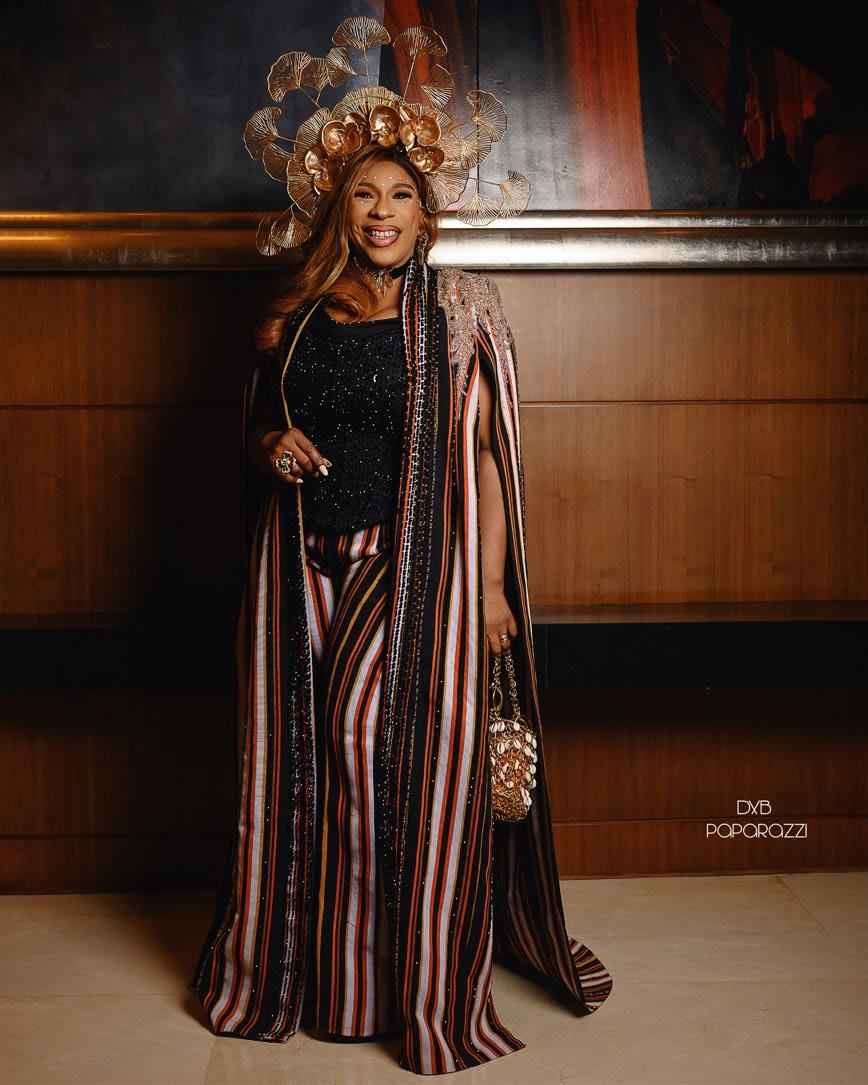
When it comes to property investment, how important is it for a woman to invest in property?
Property is one of those investments that continuously appreciate and never depreciate. I encourage women, if they can’t buy land, to try and find out where they can co-invest to own land. In co-investment, five to 10 people can come together to buy a particular plot. It is always advisable that after three years, that land is sold. Do you know that you can buy your own property with your share after the profit is shared equally between all co-investors? So you need to look for a really reliable agent. I partner with LifeCard; they are experts in what is called land banking and also encourage coinvestment.
You spoke about having a network of women where you all get together to encourage yourselves. How important is it for women to do that?
This vision that was given to me by God is an online network; we don’t have a physical venue. 70 percent of the women in that War Room live abroad, which is one reason we have our destination retreats. Now why the retreat? I have been privileged to get these women to talk to me, so I know many things, most of them are going through; believing in God for one thing or the other. We have women who, probably because they are waiting for one thing or another, run into depression. At the same time, we notice that women are always working. They do everything for everybody except themselves. Women take care of children, their husbands, and their own business, in addition to the ones their husbands give them. Even if they are not doing anything, they are praying and cooking and are always busy all through the year. They now have their extended family who also depend on them. I’ll give you an instance. If the husband organises a trip to take the entire family out of the country, he would have given his wife a particular amount of money to hold in case the kids need to get something. You will be shocked to find out that she’ll buy things for everyone; husband, kids, workers, etc. but doesn’t buy herself anything. she doesn’t buy anything for herself. Women are always looking after others but not themselves. The idea of the retreat is to take women out of these busy schedules that they’ve done throughout the year and embrace self-love. That is when we teach women to be selfish and take that short time to care for themselves. We also feed them with the Word, we have speakers that come to speak to them concerning different things ranging from their finances, marriage, parenting, and fruitfulness, to their health, and we address all that issues. But at the same time, we also create activities for them to do to relax and rejuvenate. So they go to the spa, we allow them to dance, we go for girls’ night outs, places you would not go when you are with your husband. All of that is in the same hotel. We tell them at the hotel that we would like to have the club all to ourselves, and they will go there
and dance, go on a tour or go on a yacht just to relax; that is the essence. So when they return refreshed, they can be more productive because you can never give what you don’t have. You see a lot of women running into depression because they never give themselves a break for them to come back, help them retreat and think. That is what the NHN Meet and Greet is all about. We call it the meet and greet because it’s an online platform where almost 95 percent of the women on that platform have never seen me in person. Are you looking at one day having one in Lagos?
Funny enough, the first meet and greet was in Lagos six years ago, we had 102 people, and it was just one day. The next one, we had in Dubai and spent nine days there. The other two years, we did them online because of COVID. For the fifth one, we went to Turkey, and for the next one, we are going to Singapore. We have different retreats. We have the annual retreat, usually in November, and it is only for women. Then we are premiering ‘mother and child,’ in May in London. It is fully booked already. We were meant to have been in the US for the Royal Caribbean Cruise for the summer, but my visa expired. By the time I renewed it, it was already too late because you ought to book ahead of time for cheaper rates.
You do so many things. You’re an entrepreneur, counsel women, and public speaker. When does Nkechi find the time to rest?
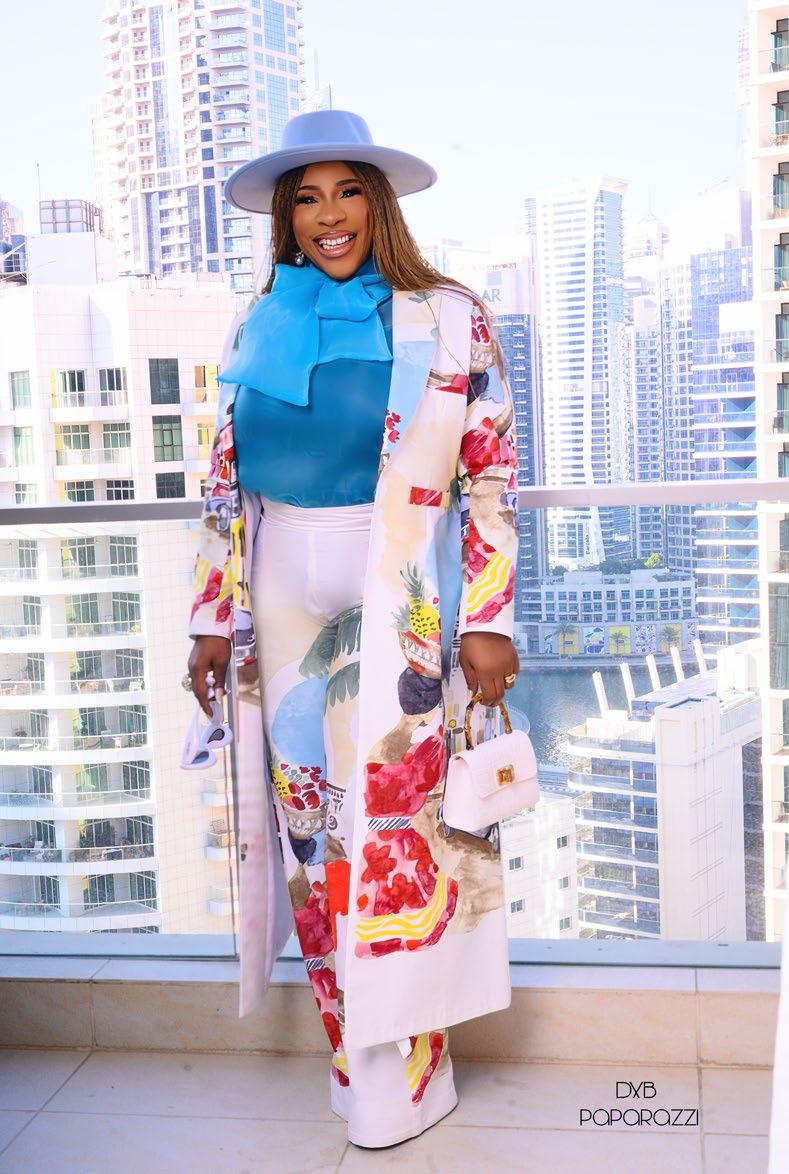
I have a lot of free time and concentrate because I don’t have any major
kids are not in Nigeria; they are in school, and my husband is not here; he is in Abuja, so I am here with time in my hands. I pick up the phone, check up on my children, pray with them, check up on my husband, pray with him, and I have my business right in my Boys’ Quarters, so I simply step out of my bedroom, go straight to my business centre, do business, come back, my church is also in my compound [laughs], so I attend all the midweek services in my compound. But on Sundays, I travel all the way to Otta. So I’ve been able to organise everything around me and have enough time. If I don’t have a church program, my shop must close by 5 pm. If you like carry a ghanamust-go, I will not open back up my shop. That is when I shut down everything about business and care for my family. I don’t work on Saturdays and Sundays; that is when I take care of my family. So I rest.

Is there any core message or value you would like to pass on to women to have as their sword and shield?
Woman, you are important; you are beautiful. Love and value yourselves. You are more than what you think. You are needed; the world can never happen without you. There will be no man without a woman, so you are valuable. But you need to value yourself so that the world can value you.
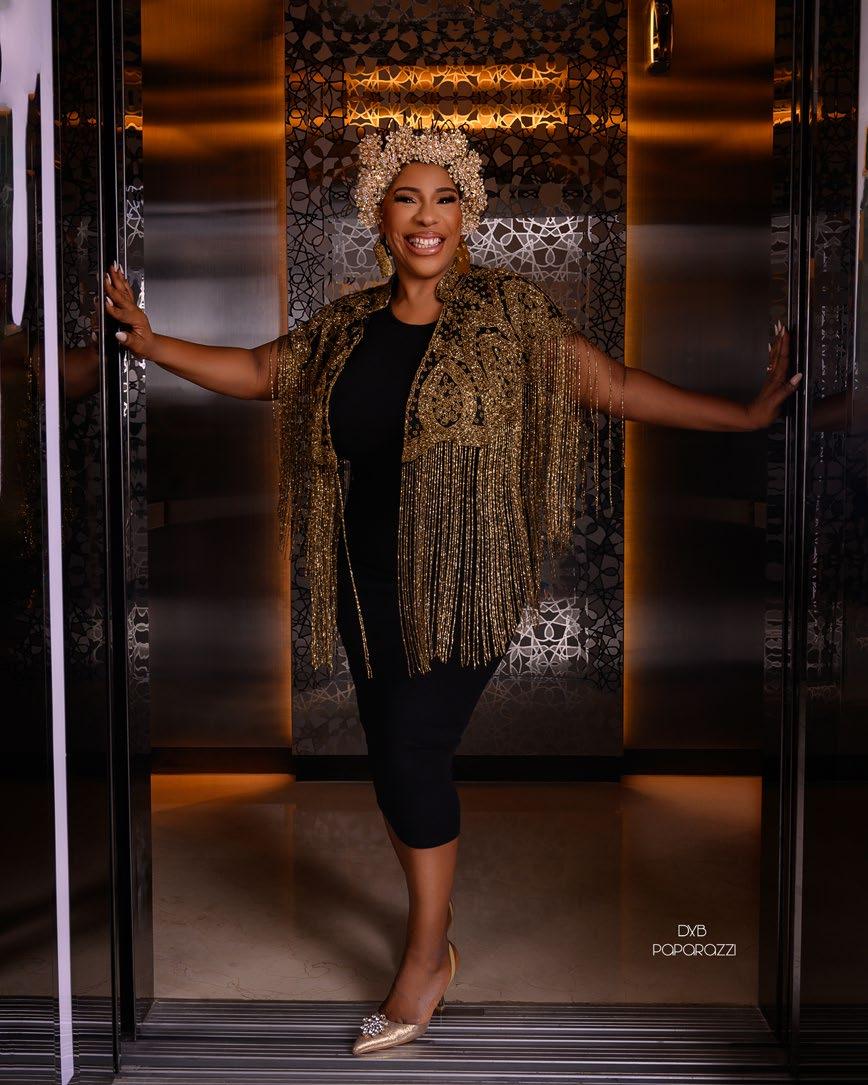
THE IMPORTANCE OF MENTAL HEALTH IN THE WORKPLACE
Mentalhealth affects everyone, regardless of age, gender, or profession. However, the workplace can be a particularly stressful environment, and it is not uncommon for employees to experience mental health challenges such as anxiety, depression, and burnout. Studies have shown that employees with untreated mental health conditions are less productive, have higher absentee rates, and are more likely to leave their jobs. Therefore, employers must prioritise mental health in the workplace to create a healthy, supportive, and productive work environment.
THE IMPACT OF MENTAL HEALTH ON JOB PERFORMANCE
Mental health challenges can significantly impact job performance. Employees experiencing depression or anxiety may have difficulty concentrating, making decisions, and completing tasks. They may also experience a lack of motivation and decreased productivity. Additionally, employees experiencing burnout may become emotionally exhausted and
disengaged from their work, leading to decreased job satisfaction and increased turnover rates. Addressing mental health issues in the workplace can improve employees’ wellbeing and boost job performance and overall productivity.
CREATING A MENTALLY HEALTHY WORKPLACE CULTURE
Creating a mentally healthy workplace culture begins with breaking the stigma surrounding mental health issues. Employers can take the following steps to promote mental health in the workplace:
1. Educate employees on mental health: Employers can provide resources and training to help employees understand mental health and recognise the signs and symptoms of mental health challenges.
2. Offer support: Employers can provide access to mental health resources such as counselling services, Employee Assistance Programs (EAPs), and flexible work arrangements to support employees’ mental health needs.
health has become a growing concern in recent years, and the workplace is no exception. Employees spend a significant portion of their lives at work, and employers need to prioritise their mental well-being. Unfortunately, the stigma surrounding mental health issues often prevents individuals from seeking the help they need. In this article, we explore the importance of mental health in the workplace, the impact of mental health on job performance, and ways to create a mentally healthy workplace culture.
3. Foster open communication: Employers can create a safe and supportive environment for employees to discuss their mental health challenges and seek help when needed.
4. Encourage work-life balance: Employers can promote work-life balance by offering flexible schedules, remote work options, and paid time off to help employees manage their personal and professional responsibilities.
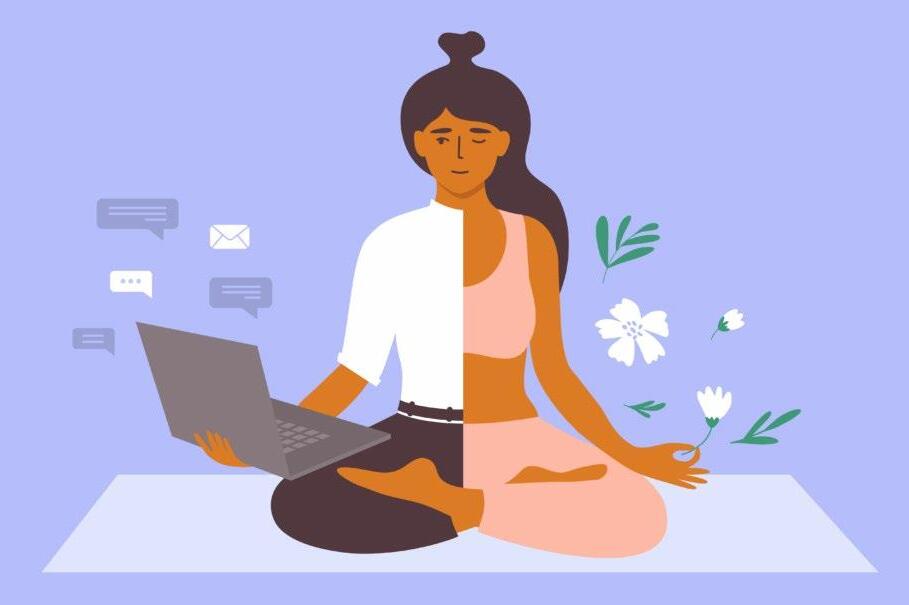
Mental health in the workplace is a crucial issue that affects both employees and employers. Addressing mental health challenges in the workplace can improve employees’ well-being and boost job performance and productivity. Employers are responsible for creating a healthy and supportive work environment that prioritises mental health. Employers can create a mentally healthy workplace culture that benefits everyone by breaking the stigma surrounding mental health issues, providing support, fostering open communication, and promoting work-life balance.
THEY ARE LESS LIKELY TO CAUSE SKIN IRRITATION OR ALLERGIC REACTIONS
Natural beauty products are not made from synthetic chemicals that can be harmful and harsh to the skin. Natural beauty products should be your go-to if you are with sensitive skin or allergies.

As the name implies, natural beauty products are made with natural ingredients like plant extracts, essential oils, and minerals. One thing that makes Natural beauty products everyone’s go-to is that they are more environmentally friendly and safer for people with sensitive skin. Synthetic beauty products, on the other hand, are made with chemical compounds. However, these products are produced so that they can mimic the effects of natural ingredients or, in most cases, enhance their properties. Even though these products are always effective, they may contain ingredients that can be harmful to some people.
The effect of natural and synthetic beauty products on the skin and environment depends on the kind of product you are using or its ingredients. Taking cognizance of the ingredients used in your beauty products, including their potential effect on the skin and the environment, shouldn’t be taken lightly. Natural and synthetic products can be both effective and safe when formulated responsibly.

Below are some possible effects of natural and synthetic beauty products on the skin and environment.
Many natural beauty products are produced with plant-based ingredients rich in minerals, vitamins, and antioxidants. These ingredients protect and nourish our skin, leaving it looking and feeling healthy.


Some natural ingredients, like tea tree oil, witch hazel, aloe vera, and so on, contain antibacterial or anti-inflammatory properties that help a lot in treating certain skin conditions like acne, eczema, and psoriasis, among others.
ON
BIODEGRADABILITY
Natural beauty products are produced in a way that they can easily break down naturally in the environment, which in return, reduces the amount of waste and pollution produced.
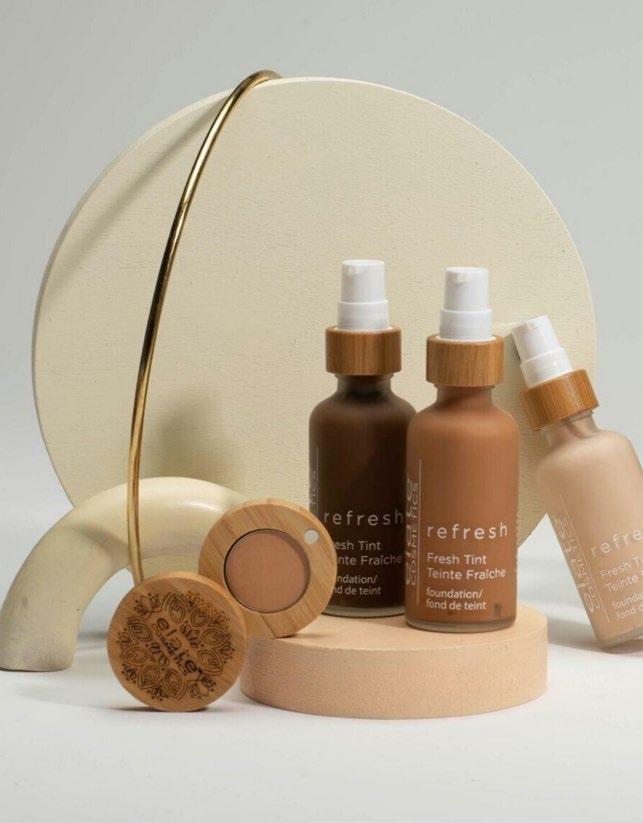
SUSTAINABLY SOURCED
1 2 3
One unique thing about natural beauty products is that their ingredients can be sustainably sourced. That is, they are grown and harvested in a way that doesn’t affect the environment or deplete natural resources.
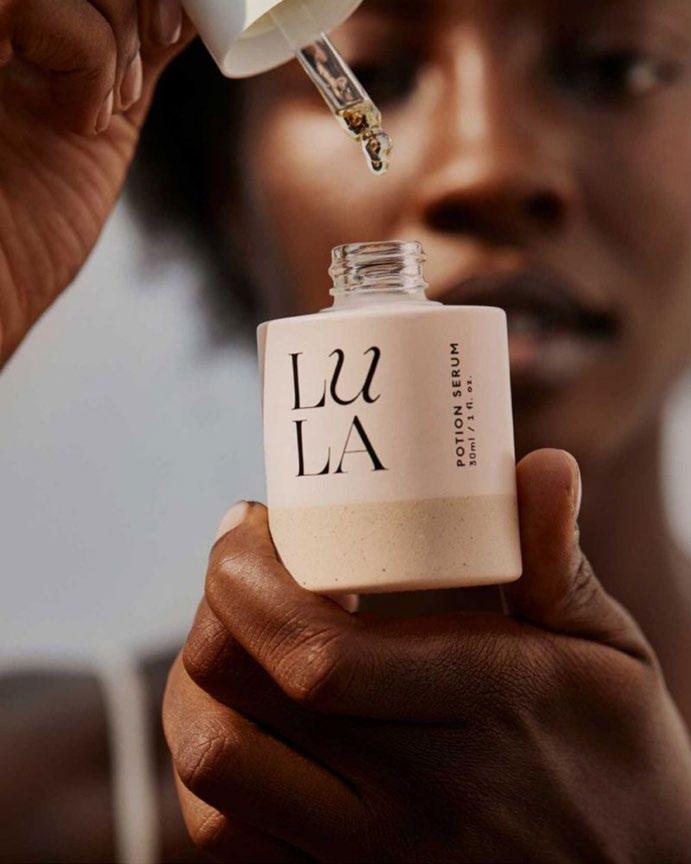
ECO-FRIENDLY PACKAGING
Most natural beauty brands prioritize eco-friendly packaging which assists in minimizing their environmental impact.

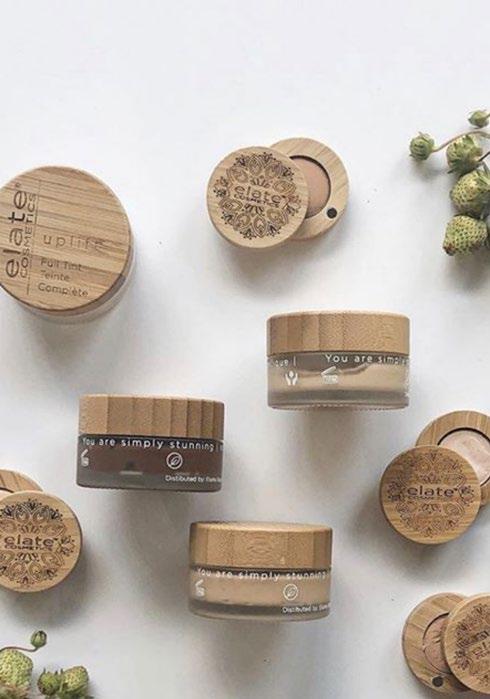

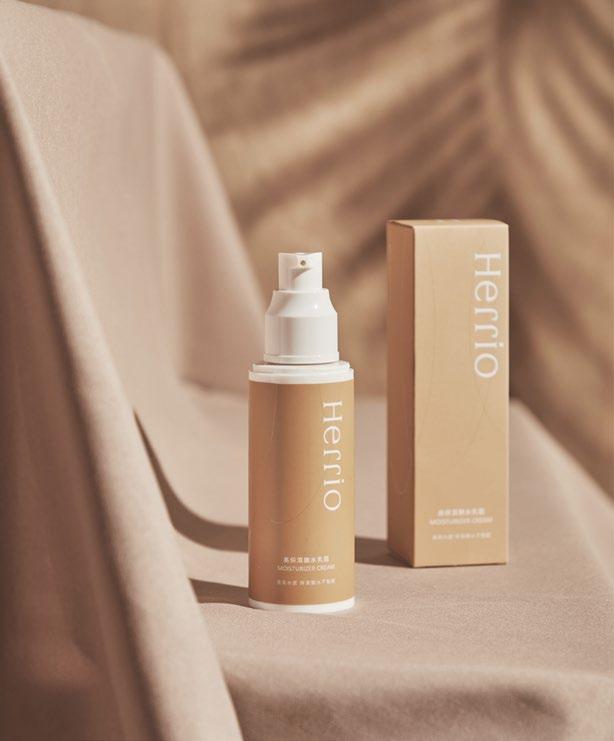
Natural beauty products are created equally, although some of them may contain harmful or toxic ingredients, which is why you must take cognizance and research the ingredients used in the making of the products, including the brand’s sourcing and manufacturing practices.
2
CONTAINS SYNTHETIC CHEMICALS THAT MIMICS THE PROPERTIES OF NATURAL INGREDIENTS
EFFECTIVE IN TREATING SPECIFIC SKIN CONCERNS
Synthetic beauty products are made up of powerful ingredients that can be highly effective in treating specific skin concerns, including acne, hyperpigmentation, and wrinkles.


ON
As we’ve said earlier, synthetic beauty products are made up of chemicals that mimic the properties of natural ingredients, more like a synthetic version of vitamin C or hyaluronic acid, and so many others. These synthetic versions are highly effective, and they work just like natural ingredients.
CAUSES SKIN IRRITATION OR ALLERGIC REACTIONS IN SOME PEOPLE NON-BIODEGRADABLE MICROBEADS
The Majority of the synthetic beauty products we see out there contain microbeads; microbeads are nonbiodegradable, and they can take up to hundreds of years to break down in the environment. They are more like plastic particles that can harm aquatic life when washed down the drain.
1 1 2
EFFECTS ON THE ENVIRONMENT AND WILDLIFE
Not all synthetic beauty products are harmful to the skin. Some of them are made with safe and effective ingredients. As we’ve said earlier, it is important to research the ingredients used in the products, including the brand’s sourcing and manufacturing practices, to make informed decisions about the products we use on our skin.
Synthetic beauty products contain synthetic fragrances and other chemicals, which can be irritating to the skin and may cause allergic reactions in some people.
SYNTHETIC CHEMICALS CAN HAVE NEGATIVE EFFECTS ON THE ENVIRONMENT AND WILDLIFE
Ingredients used in the making of synthetic beauty products can negatively affect the environment and wildlife, no matter how small they are. Triclosan, an ingredient used in the making of antibacterial products, has been proven toxic to aquatic life.
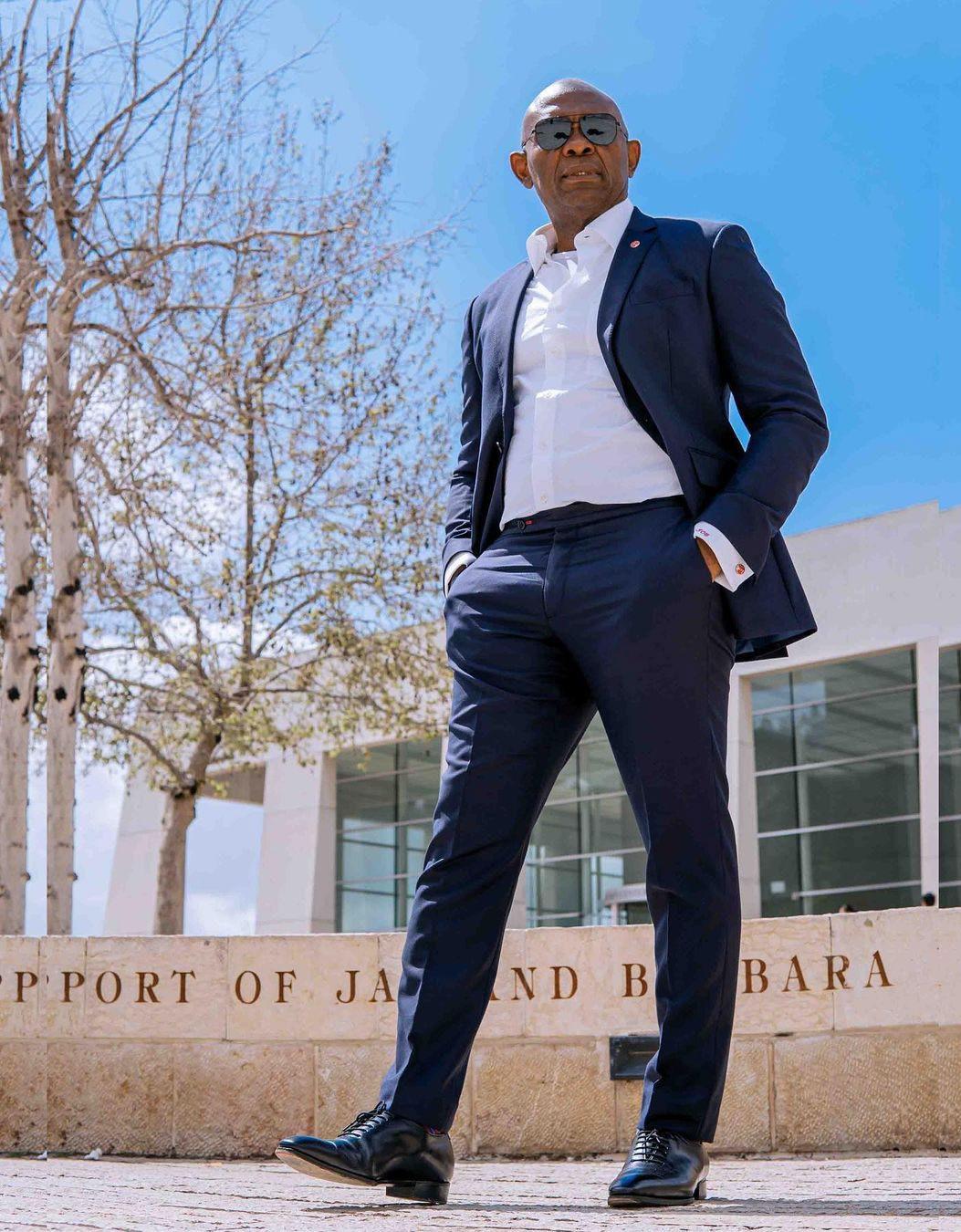 BY KEHINDÉ FAGBULE
BY KEHINDÉ FAGBULE
Oneof the most fulfilling human endeavours is career growth. For most of our lives, our dedication to our job is a non-negotiable element of our adulthood. We trade the relentless hours and commitment to climb the ladder, demanding a rise in a hierarchy that matches the knowledge and experience acquired through the years before retirement.
All over the world, there are several stories of a steady, some meteoric rise to the pinnacle of each industry, most of them starting from humble beginnings.
In Nigeria, perhaps the most inspiring is that of Tony Elumelu. So inspiring, it inspirited a pop culture reference through a nationwide hit song, MI Abaga’s Soft Like Tony.
Tony Elumelu is a prominent entrepreneur, investor, and philanthropist. He is the founder of the Tony Elumelu Foundation, which aims to
empower entrepreneurs across Africa. But how did he get to where he is today? We delve into Tony Elumelu’s career beginning.
Born on March 22, 1963, in Jos, Nigeria, Tony Elumelu attended Ambrose Alli University in Ekpoma, where he earned a Bachelor of Science degree in Economics. He would go on to earn his Master’s degree, in the same field, at the University of Lagos.
Elumelu began his career as a marketing officer at All

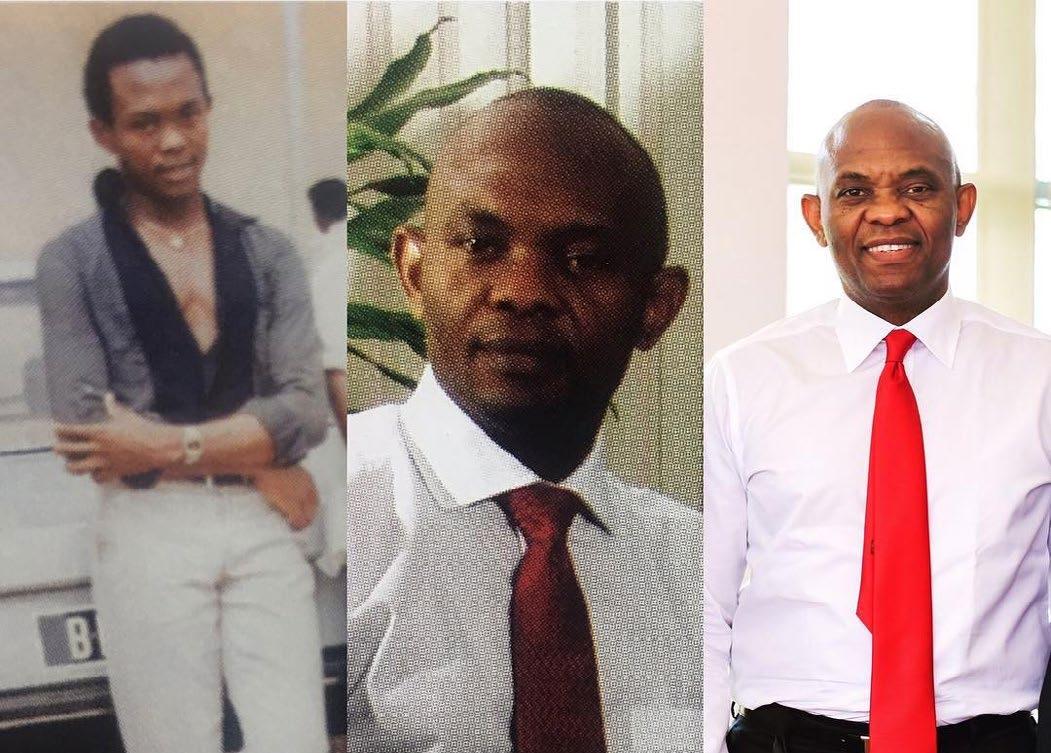
States Trust Bank in 1985. He quickly rose through the ranks to become the branch manager of the bank’s Lagos office. In 1997, he was appointed as the CEO of Standard Trust Bank, where he played a significant role in the bank’s growth and transformation.

In 2005, he orchestrated the merger between Standard Trust Bank and United Bank for Africa (UBA). He became the CEO of the newly merged UBA and led the bank to become one of Africa’s largest financial institutions. Under his leadership, UBA expanded to 19 African countries and three global financial centres, with assets totalling over $19
billion.
In 2010, Elumelu left UBA and founded Heirs Holdings, a proprietary investment firm focused on investing in African businesses. Through Heirs Holdings, Elumelu has invested in several key sectors of the African economy, including energy, hospitality, real estate, and financial services. Elumelu’s commitment to African entrepreneurship led him to launch the Tony Elumelu Foundation in 2010. The foundation’s mission is to identify, train, and empower African entrepreneurs, providing them with the tools and resources they need to succeed in their businesses. Since its inception, the foundation has empowered over 9,000 entrepreneurs across Africa. His success in business and entrepreneurship has earned him several awards and accolades. In 2013, he was awarded the National Honour of Commander of the Order of the Niger (CON) by the Nigerian government. He was also named one of Time Magazine’s 100 most influential people in the world in 2015.

In conclusion, Tony Elumelu’s career beginning is a testament to his passion, hard work, and commitment to African entrepreneurship. From his humble beginnings as a marketing officer to his current status as a prominent entrepreneur and philanthropist, Elumelu’s journey inspires many. He has proven that with dedication and perseverance, anyone can achieve their dreams and positively impact the world. As we celebrate Labour Day this year, keeping our eyes fixated on the prize is important. Why do we work so hard? In addition to solving some of humanity’s problems and bringing ease to people’s lives, hard work and dedication are also the most reliable pathways to becoming soft like Tony.
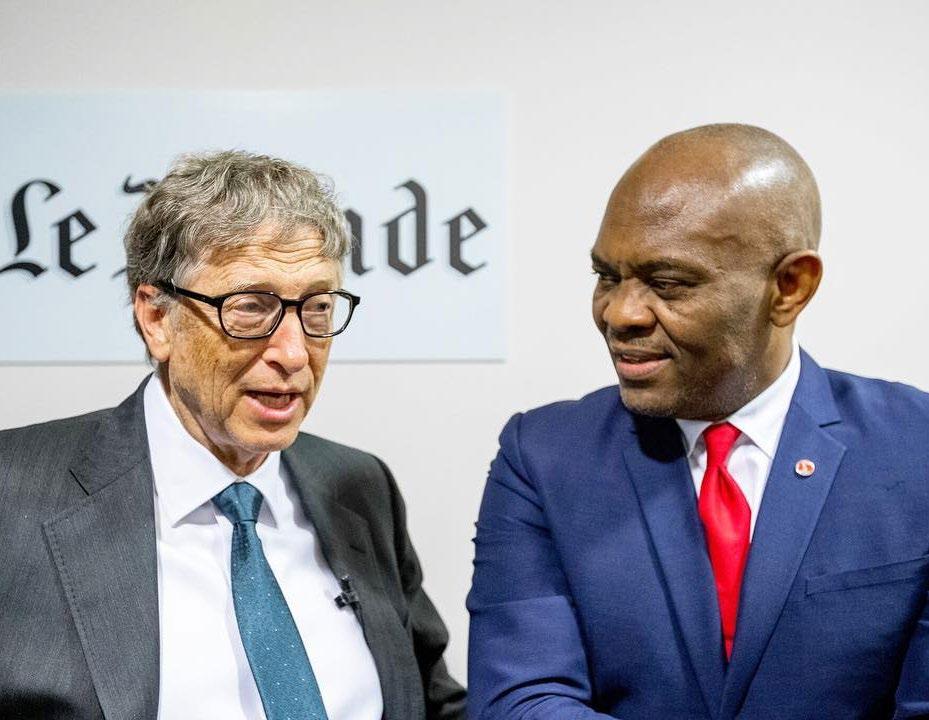
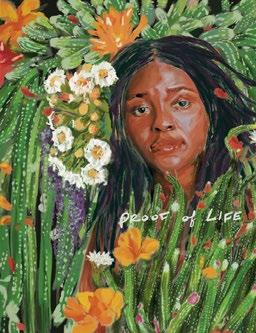
MOVIE REVIEW:





Imustadmit, I went into Renfield not overly excited. I remember not being particularly inspired by the trailer, which sold the movie as a fairly by-the-numbers modern retelling of the classic Dracula story. I went in to see it solely for one thing only: Nicholas Cage’s performance as the famous vampire. After a rather brisk 90 minutes, I walked out pleasantly surprised.
Renfield is a pretty interesting mash of genres that also manages to be a study in breaking up a centuryold co-dependent relationship. Most of all, though, it’s powered by two great performances from its leads, Nicolas Cage and Nicholas Hoult. Nicholas Cage has made a name for himself off the intensity and, at times, the eccentricity of his roles. Many of his performances are imbued with feral sincerity, and in Reinfeld, he is cast perfectly as Dracula. Whether he is sneering under piles of prosthetics, roaring or slithering across the screen, Cage is incredible to watch. Even though he gets plenty of time, It’s a bit of a pity we don’t see him more than we do in the film. (Renfield 2, anyone?)
The flick instead focuses on Renfield, Dracula’s familiar (a demon supposedly attending and obeying a vampire.), reimagined as a hard-done-

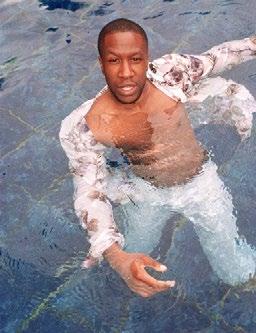


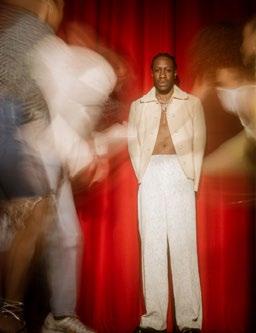





by millennial terrorised by his narcissistic boss. Nicholas Hoult is great as well, bringing to the fore the selfeffacing nature that 90 years in a massively unbalanced relationship will mould anyone into. The film shows his life being little more than scouting out locations for his master to feed, fighting against the forces of good that try to stop them, losing and starting the whole cycle again, all for the price of a sliver of Dracula’s power. After his latest loss, his master goes into hiding, and Renfield finds a therapy group for people in relationships with narcissists. Hilarity ensues. What I liked most about the plot was the winking, not overly self-serious tone it took with the material. There were more jokes than I was expecting, and the film was definitely better for it.
The horror-comedy vibe of the A-plot of the film is accentuated with quite a few action scenes, resulting from a rather adventurous genre blend. About halfway through the movie, a police-gang plot line featuring Awkwafina develops, leading to a few more (of course welcome) hijinks than I expected going in. The film doesn’t hold back on the gore either, with literal heads rolling and arm dismemberments as part of the highly stylised action. I also appreciated Hoult doing his stunts; the smoothness of the cuts definitely added to the experience.
Overall, Renfield was an unexpected gem. Brisk, funny in spurts (heh) and smarter than it looks on the surface. It won’t change your life, but it’s a bloody good time.




Netflixmakes an early bid for the year’s juiciest new series with Beef” a twisty, dark and stellar showcase for Steven Yeun and Ali Wong in which the escalating fallout from a road-rage encounter spirals out of control. Disarmingly funny and increasingly nasty, it should make everyone think twice before honking at that idiot stranger who just pulled out in front of you.


That’s where it all begins for Danny Cho (The Walking Dead’s Yeun), a struggling contractor working with his unambitious brother Paul (Young Mazino) after he nearly backs into Amy Lau (Ali Wong), a mom on the verge of cashing in by selling her company to a wealthy art snob (Maria Bello).

One pointedly extended finger later, the chase is on, leaving both Danny and Amy eager to settle the score, prompting a game of tit-for-tat that gradually begins to inflict pretty significant collateral damage on those around them, including Amy’s husband, George (Joseph Lee), who is somehow oblivious to the simmering anger that his wife carries around inside her.
Series creator Lee Sung Jin has worked predominantly in sitcoms, which explains the darkly comic streak that runs through many of the situations. But the weird turns have a dramatic side, making Beef as hard to characterise as it is to stop watching.

Part of that has to do with the deft way the series peels back layers regarding the key players and their relationships, including past actions that have major
consequences in terms of the pivotal conflict. Those sequences help explain the chips on their shoulders that might lead Amy and Danny to risk so much on a seemingly pointless feud.
The fact that the series features a predominantly Asian-American cast is easily overlooked, given the device that sets it all in motion but show effortlessly weaves elements of cultural specificity into the proceedings, including Danny’s sudden and not-too-convincing
interest in the Korean church and the pressure he feels regarding his obligations to his parents as well as his brother.

Perhaps foremost, Beef organically advances the story in a way that carefully builds in absurdity as the bad choices and retaliation pile up upon each other. It’s also that rare streaming series that doesn’t feel like it’s straining or vamping to flesh out ten episodes.
In that sense, the premise’s simplicity belies how intricately it all unfolds. Danny and Amy might not appear to have in common, but they share a hidden bond in their seemingly inexhaustible supply of pettiness and hostility. Beef takes that dynamic, marinates in it, and somehow serves up a four-star meal.